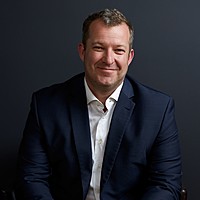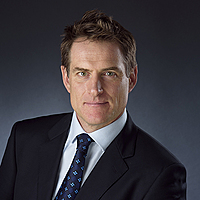How to find the next CSL of fund managers
We all wish we had invested in CSL back in the float. Investors that did the legwork involved in finding and then backing the opportunity at its listing in 1994, would have seen a $10k investment grow to over $3.6 million over the last 26 years, and that's before including dividends. Finding and backing a great Australian story like this when it's on the ground floor can make a fundamental difference to your future.
The same can be true of investment managers. By identifying a great manager early and investing with them, you can benefit from the compounding of the whole journey, which often includes stronger gains in the early years while the fund is still small and nimble.
While there is no single secret recipe for success in spotting the next CSL of investment managers at the start, there are some simple rules you can follow to improve your odds. We share these here along with some examples.
You need to be different if you want to outperform
There are many ways to discover new managers to add to portfolios. Industry publications like Livewire are useful. The main industry databases such as Prequin, Bloomberg, Zenith, Lonsec, and Mercer, are obvious starting points too.
Part of Lucerne’s DNA, however, is the belief that you need to be different if you want to outperform.
One strategy we follow to deliver this difference is to seek out managers early on, well before they appear on the approved product lists of traditional firms, and partner with them then. Being able to do this highlights one benefit of being an independent investment group; we can invest in any manager (or investment) that aligns with your objective.
So while the databases will always be part of our process, we want to find ‘the next’ Bronte Capital and back it at the start, given that since inception in May 2009, Bronte has delivered 17.98% p.a. on average, and with little correlation to the ASX. These kinds of funds will rarely show up on the platforms listed above when they are small, and some prefer never to appear at all.
So finding these kinds of managers often requires us to do our own research which can involve using our established networks, and leverage our track record of partnering with funds early. With over a decade spent doing this, new opportunities often come to us before the broader market, to the benefit of our investors.
Good managers talk to other good managers, so they can be a great source of ideas too before the rest of the market catches on. It’s not unusual to be talking with a manager about their fund, and for them to then say: ‘you know, you should go and see what these guys are doing... It's really interesting’...
An initial five-point checklist
It is important to follow a defined and rigorous process. Five key points we focus on as part of our initial checklist would include:
1: How are they different, and what is their competitive advantage? Managers need to be able to clearly explain what their point of difference is from their competitors: do they look at novel data or utilise it differently, are they active in new markets, or is their process unique? As Buffett would say, ‘what is their moat and is it sustainable’?
2: Is there a defined process (...and do they stick to it)? Managers need to have good definition around their processes for evaluating an investment, position-sizing, ensuring diversification, and conversely, they should have rules about when to make a divestment. It’s important to understand their ‘rule-book’, as well as find out whether they have ever broken their own rules! Also, do they have the ability to change their rulebook if required? Many do not, often to their detriment. Agility is paramount.
3: Performance - and how they will keep delivering it? Managers should be able to articulate how their process has generated returns to date, and why you could expect it to continue or change. While it is true that the past doesn’t predict the future, historical outperformance must be evident to increase the chances of it being repeated.
4: How long would it take to head for the exits? It is important to evaluate how liquid the fund is. If the manager needed to rotate out of a large part of the portfolio, how long would it take for them to do so? Are you looking at days, weeks, months? We like our managers to be mobile, i.e.: more like a jetski than the QE2. Some asset classes are far more liquid than others, and as we saw in March, adverse conditions can see liquidity almost disappear. Again, agility is paramount.
5: How transparent are they? Funds should be happy to tell you their history, operations, and business structure, and to respond to requests for information promptly with clear responses. A lack of transparency is often a red flag.
Capacity constraints, Capital preservation, and Co-alignment
These factors above would apply to the research of most funds. Some factors, however, are more relevant when considering an early-stage investment, and we look at some of these here.
Skin in the game: When you sweat, they should sweat too
Incentives are everything in business. Warren Buffett’s mentor and business partner, Charlie Munger, put it most concisely when he said: “Show me the incentive, and I’ll show you the outcome”.
Munger’s point highlights that how people are incentivised is one of the most important factors in determining how things will pan out. We think in a similar way. You want to pick a manager that's not only aligned from a remuneration perspective to performance but is personally aligned because the majority of their investable wealth is actually in their strategy. This focuses the mind when it comes to the value of capital preservation rather than the sole pursuit of growth no matter the risk. That way they win when investors win, and conversely, they sweat when investors sweat.
As an example of one fund that we partnered with early on is Totus Capital, who would be well known to Livewire readers. We first met Ben McGarry back in 2013 when the Totus Alpha Fund was around $10 million in size. The fund passed our screening process and in terms of alignment, he and his family were the biggest investors (and remain so to this day) which was exactly what we seek in terms of alignment. Fast-forward to today the fund has gained 15.9% p.a. on average since inception.
As a bit of funds management history, the very same morning we met Ben we also met another emerging fund that was getting some attention. The two managers couldn’t have been more different. Ben had skin in the game and was very modest, while the other manager had far less alignment and was somewhat ‘brash’. Fast forward seven years and their fortunes have diverged completely... and it is very clear today that we backed the right manager - and for the right reasons.
Small is beautiful: Look for capacity-constraints
With most industries, the bigger you get, generally the more powerful you become. Whereas with funds management, the bigger you get, the smaller your pool of options becomes. Take Bronte and Magellan as examples. Both are global equity managers. Recognising that they have very different mandates, Bronte could participate in a transaction where $10 million makes a difference, as it would represent 1% of their $1 billion fund, and there are plenty of $10m liquid investment options in global markets. If that position doubles, Bronte adds a meaningful 1% to performance.
In comparison, if Magellan were to do the same, it means nothing as they are running an $80 billion fund; $10 million is a rounding error and most likely they wouldn’t even participate in a deal that small. Magellan has built a great business, but it is closer to the’ QE2’ we referred to earlier than the ‘jet skis’ that we prefer to ride on.
The point here is that the smaller you are, the more opportunities you have available to you. We, therefore, want to find an investment manager that tells us on day one that they have a set target to be capacity constrained, and, more importantly, who then goes on to honor that.
We met with Bronte’s John Hempton in 2013, and have invested with his fund since then. At the time, he was not well known and was managing ~$100million. He was committed to hard-closing the fund at approximately a billion. Today, the fund is well known and, true to his word, they are hard-closing shortly as they reach their capacity.
Another example would be Aquasia, an independent advisory group that runs a number of credit funds. These can make up part of our credit allocation for investors. Aquasia has hard closed two of its funds already. Separate to those two, they also run a private fund that is deal-specific and is therefore never going to reach a significant scale which is great. Being small and nimble allows them to build a portfolio that has, so far, never had a negative month and has returned approx 9.8% per annum since inception.
Risk management: Do they prioritise capital preservation?
Most fund managers have internal rules around their investment process regarding asset screening, investment size, diversification, and the circumstances that would prompt a sale. It is worth trying to assess not only what the guidelines are, but how well they have stuck to their own rules.
While we diversify our investors across asset classes including credit, alternatives, real assets, and cash, most portfolios will typically still have some allocation to equities (although we intentionally reduced this significantly in late 2019). Our bias is still to own equity mandates that are highly flexible.
We prioritise capital preservation over growth, so how managers deal with risk is absolutely critical in our assessment, not least in the context of equities which can be highly volatile as this year demonstrated. Back in 2013, we researched Blackmore Capital’s Marcus Bogdan as an ASX blue chips manager and while the fund passed our research process, the intense focus on risk resonated with our own philosophy.
Risk management permeates his strategy providing us comfort, given equities are a higher risk allocation in investors’ portfolios. One thing that had impressed us when we first met was how well he had steered his portfolios through the GFC. He continues to perform significantly better than the index and came through FY20 close to flat, helping Blackmore earn 'Best Australian Equities fund' from IMAP this year.
When we get asked what we think about Commonwealth and other blue-chips, our line is that: ‘We don’t have a view on whether CBA is a buy, because we invest in Marcus to manage the blue chips and Marcus is a buy’.
Putting it into practice
So while we always run an extensive due diligence process on new funds, three things that give us comfort in partnering early on are:
- An intense focus on capital preservation,
- A commitment to tight capacity constraints, and
- A strong co-alignment between fund employees and investors.
We intend to run webinars with some promising emerging funds over the coming months, so please hit FOLLOW if you would like to be among the first to hear about them.
A different type of wealth management
Lucerne is Australia’s pre-eminent independent Investment Group, providing high net worth investors access to a family office-style service. We allocate to any investment that meets your objectives and we invest alongside you. Click ‘CONTACT’ to talk with us.
4 topics
1 stock mentioned
2 contributors mentioned


